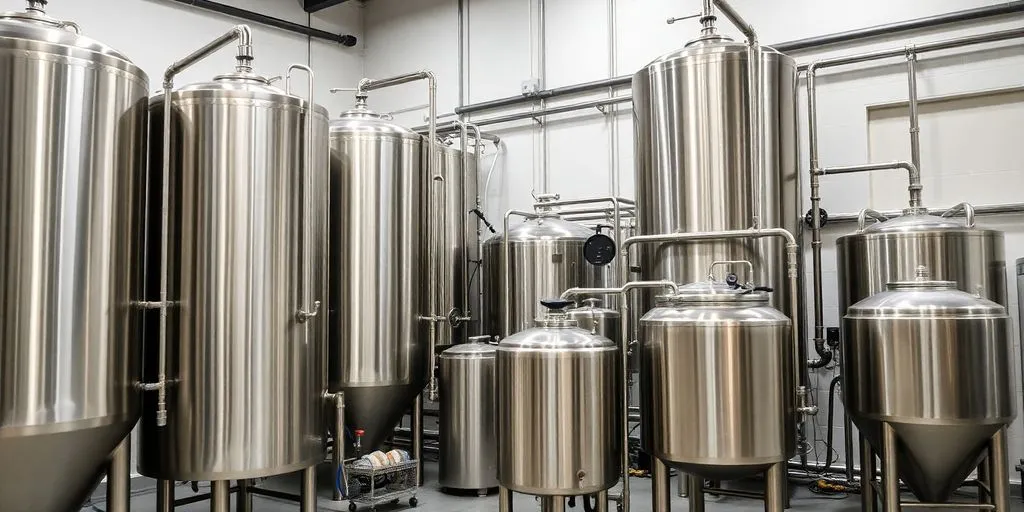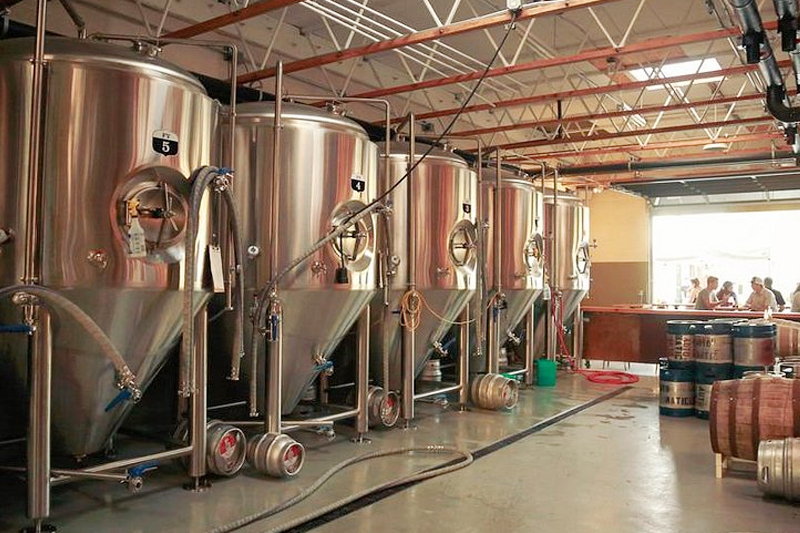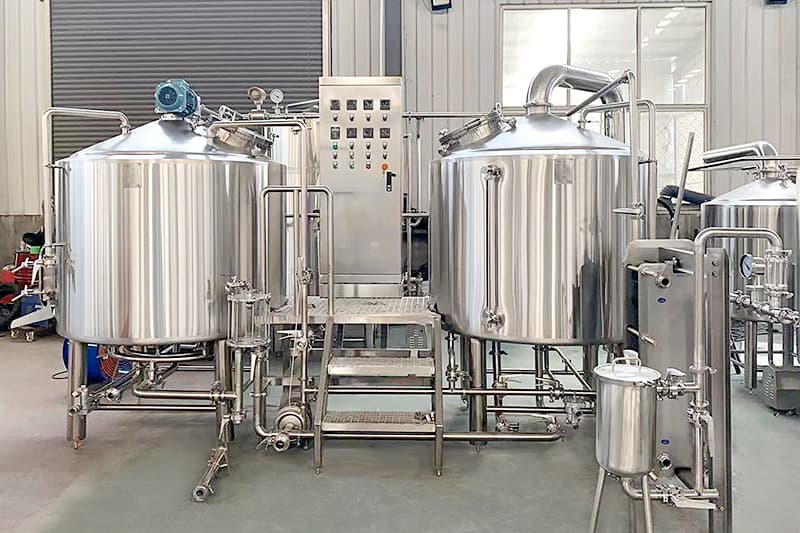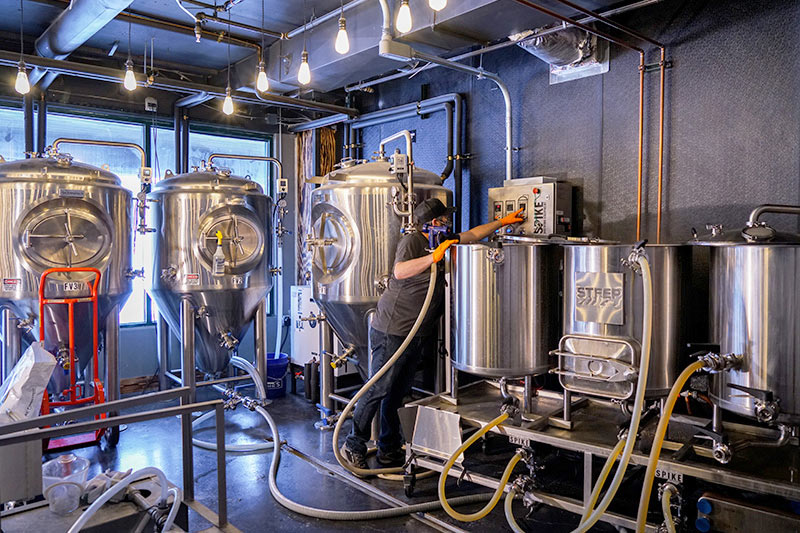Discover how to brew your own craft beer at home with the right beer brewing equipment. This comprehensive guide will walk you through everything you need to know about homebrewing, from selecting the perfect brew kettle to mastering the fermentation process. Read on to unlock the secrets of becoming a skilled brewer in the comfort of your own home!

What Do You Need to Start Home Brewing?
Starting your home brew journey is exciting and rewarding. To begin, you’ll need some essential brewing equipment.
Essential Equipment Needed:
- Brew Kettle: For boiling your wort.
- Fermenter: A container where fermentation happens.
- Airlock and Stopper: Allows CO₂ to escape while preventing contaminants.
- Hydrometer: Measures the specific gravity of your beer.
- Sanitizer: Keeps your equipment clean.
- Bottles or Kegs: For storing your finished beer.
Having the right equipment and supplies ensures you craft a brew that’s both tasty and safe to drink.
Choosing the Right Brewing Equipment
Selecting the appropriate brewing equipment is crucial for success.
Factors to Consider:
- Size: Start with equipment suitable for 5-gallon batches.
- Material: Opt for stainless steel for durability and easy cleaning.
- Budget: Quality equipment can range from affordable to premium.
Tip: Investing in good brew beer equipment enhances your brewing experience and the quality of your beer.
Why Is a Stainless Steel Brew Kettle Essential?
A brew kettle is the heart of your brewing process.
Benefits of Stainless Steel Kettles:
- Durability: Resistant to corrosion and scratches.
- Heat Conductivity: Even heat distribution prevents scorching.
- Easy to Clean: Maintains hygiene standards.
Using a stainless steel brew kettle ensures a consistent and high-quality brew every time.
Understanding the Mash Process
The mash is where the magic begins, converting starches into fermentable sugars.
Mash Tun:
- A vessel used to mash grains with hot water.
- Insulate your mash tun to maintain consistent temperatures.
- Can be a separate vessel or combined with the brew kettle in a single system.
Note: Proper mashing is key to extracting the right flavors and sugars for your beer.
How to Manage Fermentation Like a Pro
Fermentation is where yeast turns sugars into alcohol and CO₂.
Fermenters:
- Buckets or Carboys: Common types of fermentation vessels.
- Conical fermenters: Allow easy removal of yeast.
- Temperature Control: Vital for consistent results.
Tip: Monitor your fermentation closely. The fermentation temperature is critical to prevent off-flavors.
The Importance of Temperature Control in Brewing
Maintaining the right temperature during brewing and fermentation affects the quality of your beer.
Temperature Control Methods:
- Cooling Jackets: For advanced setups.
- Temperature Controllers: Automate heating and cooling.
- Insulation: Keeps temperatures stable.
Fact: Different yeast strains require specific temperatures for optimal performance.
Cooling Your Wort: Wort Chillers Explained
After boiling, your wort needs to be cooled quickly to prevent contamination.
Types of Wort Chillers:
- Immersion Chiller: A coil submerged in the wort.
- Counterflow Chiller: Wort and cold water flow in opposite directions.
- Plate Chiller: Compact and efficient, with multiple plates for heat exchange.
Using a wort chiller reduces the risk of bacteria growth and helps achieve a clearer beer.

Bottling and Kegging: Which Is Right for You?
Deciding between bottling and kegging depends on your preferences.
Bottling:
- Pros:
- Easy to share with friends.
- No need for additional equipment.
- Cons:
- Time-consuming.
- Risk of over-carbonation.
Kegging:
- Pros:
- Faster carbonation.
- Consistent serving pressure.
- Cons:
- Requires a keg, CO₂ tank, and regulator.
- Higher upfront cost.
Consideration: For those who love draft beer, kegging offers a more professional setup.
Tips for Brewing Better Beer at Home
Enhance your homebrew with these practical tips.
Brewing Tips:
- Sanitize Everything: Prevent infections in your beer.
- Use Fresh Ingredients: Fresh hops and grains make a big difference.
- Take Notes: Document your brewing process to replicate successes.
- Control Fermentation Temperature: Avoid off-flavors.
- Experiment: Try different recipes and techniques.
Remember: Brewing is both an art and a science. Practice and patience lead to quality beer.

Beer Brewing Equipment
FAQs
You’ll need a brew kettle, fermenter, airlock, hydrometer, sanitizer, and bottles or a keg. Starter kits often include these essentials.
While possible, a dedicated stainless steel brew kettle is recommended for its size, durability, and features like volume markings and spigots.
Temperature control is crucial during both brewing and fermentation. It affects yeast activity and the development of flavors.
Homebrewing is brewing on a small scale at home. Microbrewing refers to small commercial breweries producing limited quantities of beer.
A wort chiller cools your wort rapidly, reducing the risk of contamination and improving beer clarity. It’s highly recommended.
Consider exploring our Beer Brewing Equipment for a wide selection of professional-grade supplies.
Conclusion
Embarking on your homebrewing journey is both exciting and rewarding. With the right beer brewing equipment and a passion for crafting unique flavors, you can create your own craft beer that rivals commercial brews. Remember, the key is to start with quality equipment, maintain meticulous sanitation, and enjoy the process of learning and experimenting. As manufacturers of craft beer equipment, we’re here to support your brewing adventure every step of the way.
Key Takeaways
- Essential Equipment: Invest in quality brewing equipment like a stainless steel brew kettle and fermenter.
- Temperature Control: Crucial for both brewing and fermentation to produce consistent, high-quality beer.
- Sanitation: Keep all equipment clean to prevent contaminating your brew.
- Experimentation: Don’t be afraid to try new recipes and techniques.
- Resources: Utilize reliable sources and suppliers for your brewing supplies.
Ready to take your brewing to the next level? Contact us today to explore our range of professional beer brewing equipment!
For more advanced setups, check out our Beer Brewing System and Conical Fermenters to enhance your brewing experience.

